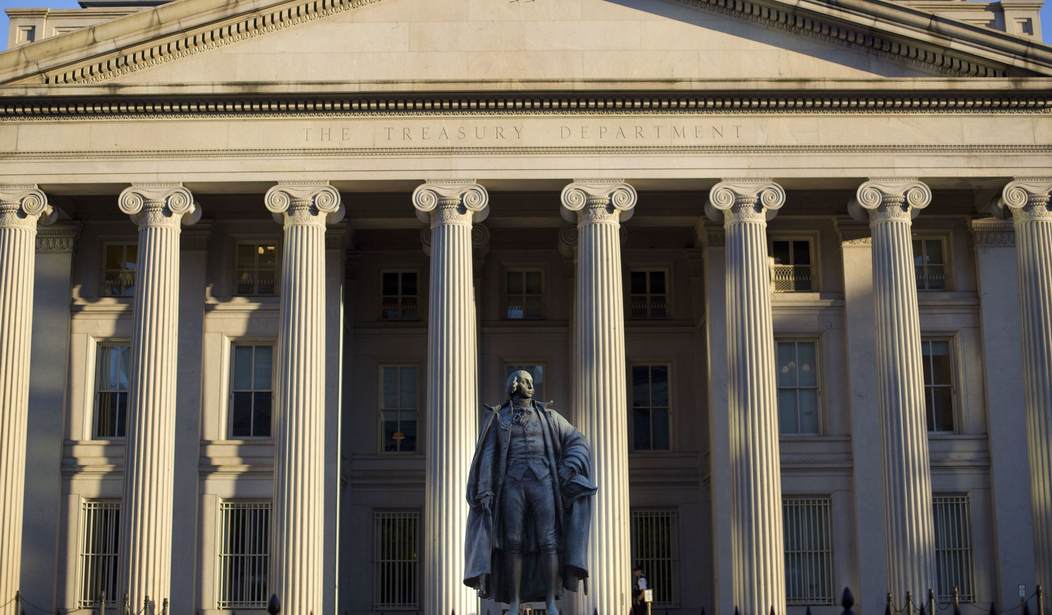In recent years, environmental, social, and governance (ESG) metrics have become ubiquitous and omnipotent throughout the financial sector. From big banks to large corporations to asset management companies, the ESG bandwagon just keeps growing.
While the list of influential businesses willing to play the ESG game continues to expand, those who oppose the use of ESG scores in financial and non-financial decisions is also on the march.
For instance, Florida recently passed a law intended to prevent ESG score abuse. As Florida House Speaker Paul Renner (R-19th District) put it, “Corporations have no right to bypass our democratic process. Companies that engage in ESG hurt their customers and the communities they serve, including Florida’s retirees, by making everything they produce more expensive. ESG undermines our national security and bypasses our democratic process.”
Amidst this ongoing battle, the U.S. Treasury Department has made it crystal clear that it stands on the side of the pro-ESG movement, going so far as to label state laws that inhibit the use of ESG scores a risk to national security.
Specifically, the Treasury Department claims that state-based anti-ESG laws increase “the risk that international drug traffickers, transnational organized criminals, terrorists, and corrupt foreign officials will use the U.S. financial system to launder money, evade sanctions, and threaten our national security.”
The fact that the U.S. Treasury Department adamantly supports the widespread use of ESG metrics in the financial sector is not surprising. Under the stewardship of Secretary Janet Yellen, the U.S. Treasury Department has prioritized climate change and nebulous social justice causes ahead of its basic mission.
Recommended
According to the Treasury Department, its mission is to “maintain a strong economy and create economic and job opportunities by promoting the conditions that enable economic growth and stability at home and abroad, strengthen national security by combating threats and protecting the integrity of the financial system, and manage the U.S. Government’s finances and resources effectively.”
I hate to say it, but it seems that the Treasury Department is failing to fulfill its basic mission because it has become sidetracked with promoting political causes while the U.S. economy continues to deteriorate.
The U.S. Treasury Department believes that “Climate change is an existential threat to the planet and an emerging and increasing threat to the global financial system and economy, including our own.”
What’s more, “The U.S. Department of the Treasury is committed to leveraging the full extent of its capabilities in support of the Biden Administration’s government-wide approach to addressing climate change.” And, “Secretary of the Treasury Janet L. Yellen has prioritized climate issues at the Treasury Department.”
Because ESG and climate change go hand-in-hand, it is no wonder that Yellen has targeted state laws that limit the use of ESG. However, the notion that laws passed by states, which are solely intended to prevent the use of ESG scores in non-financial decisions, are a threat to national security is a non-sequitur at best.
Like most straw man arguments, the idea that anti-ESG laws pose a national security risk is a logical fallacy. Actually, these types of laws protect national security, as well as safeguarding individual liberties.
By preventing big banks and the like from arbitrarily denying financial services to Americans based on their personal political, religious, and social affiliations, anti-ESG laws serve as a sentry against financial tyranny. Moreover, by no means do these types of laws make it easier for terrorists or criminals to launder money or evade national financial sanctions.
In reality, anti-ESG laws underscore national security by prioritizing domestic production of fossil fuels, which helps make the United States energy independent and not beholden to rogue regimes for their oil and natural gas resources. Moreover, by incentivizing domestic production of oil and natural gas, these types of laws erode the international influence of nations like Iran and Russia.
In fact, ESG metrics weaken U.S. national security by undermining the engine of prosperity that is the U.S. economy. By placing undue emphasis on fighting climate change and making the United States more dependent on countries like China for the necessary components for solar and wind power as well as batteries for electric vehicles, ESG systems actually strengthen U.S. adversaries while increasing the price of energy here at home.
It seems clear as day that those in favor of a nationwide ESG system are frightened about the prospect that state-led anti-ESG efforts pose a significant challenge to their grip over the financial system. However, this is federalism in action. And, states have every right to protect their citizens from powerful special interest groups that seem hellbent on implementing a top-down ESG system upon we the people.
Chris Talgo (ctalgo@heartland.org) is editorial director with The Heartland Institute.

























Join the conversation as a VIP Member